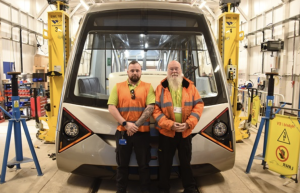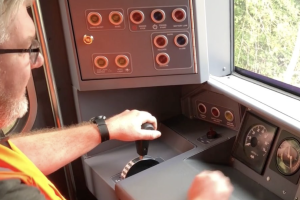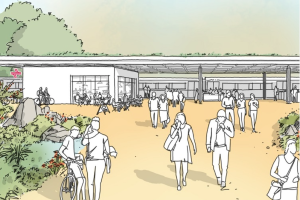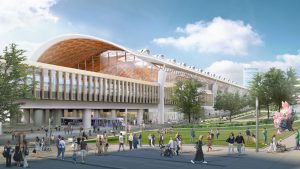HS2 forecasted to boost West Midlands economy by £10bn
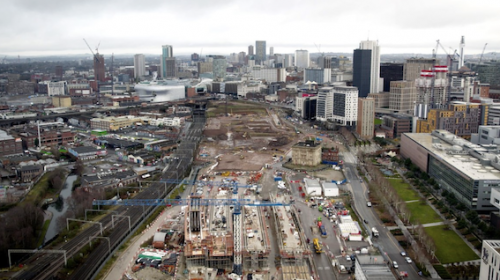
Since the approval of the HS2 railway project in 2017, there has been an increase in development and investment around its key hubs in the West Midlands.
Curzon Street Station in central Birmingham, Interchange Station in Solihull, and the Washwood Heath Depot and Network Integrated Control Centre are currently being developed and are forecasted to boost West Midlands economy by £10bn in the next 10 years.
HS2 says it is estimated to generate 41,000 additional homes, 704,000 square meters of new floorspace, and 30,835 new jobs within its three impact zones alone.
Recent data indicates a rise in planning applications, construction and housing projects near these hubs.
Sir Jon Thompson, executive chair at HS2 Ltd said: “This new research provides evidence that HS2’s future arrival is already driving transformational regeneration and investment in the West Midlands. It shows that investor appetite, regeneration and investment close to where we’re building our three key assets in the region has surged in the last six years.
“Driven by the promise of enhanced connectivity and heightened investor confidence, HS2’s arrival is spreading prosperity and opportunity to the communities it touches for generations to come.”
Within a 1.5-mile radius of major HS2 hubs like Curzon Street Station in central Birmingham, Interchange Station in Solihull, and the Washwood Heath Depot, planning applications have risen by two-thirds since 2017.
The total planned floorspace, including commercial and residential areas, has doubled, while the planned number of new homes has increased from 10,000 to 55,000.
Construction value of major new projects within HS2 impact zones has risen sharply by 240% since 2017, indicating increased investor interest and development activity.
Steven Knight, screenwriter and creator of Peaky Blinders is currently building Digbeth Local Studios, a film and TV studio. It’s poised as the backdrop for the upcoming Peaky Blinders movie is set to commence production in September.
The studio, spanning 7,500 sq m within repurposed Victorian structures, is soon to house three film studios, production offices, and a collaborative workspace.
Knight described the attraction of Birmingham and now with the confirmation of HS2, he expressed optimism for the continuation of the longer line in the future.
He said: “In the past, when we’ve encouraged people to consider moving to Birmingham, we didn’t have the allure of HS2 to highlight. Now, with HS2 becoming accessible, people from all over can come to work and film here, enhancing the appeal of our studio and the city itself.
“The primary advantage we offer is employment, and it’s not limited to technical and design roles. We’ll also be providing opportunities for carpenters, drivers, and security personnel and the list goes on. I think what is most important is that we don’t want to land the TV and film industry into Digbeth like a spaceship, and throw barbed wire around it. We want to make this a new industry that’s planted into the soil of this area and this community.”
Adjacent to this, the revitalisation of the Tea Factory is underway. This is set to become the BBC’s new West Midlands hub, giving new life into the abandoned Typhoo Tea factory, dormant since 1978.



